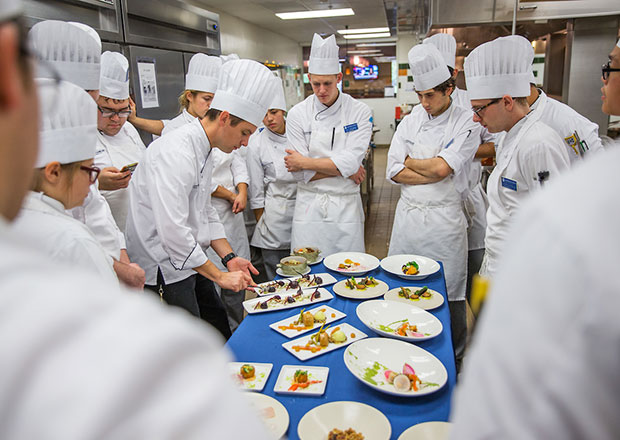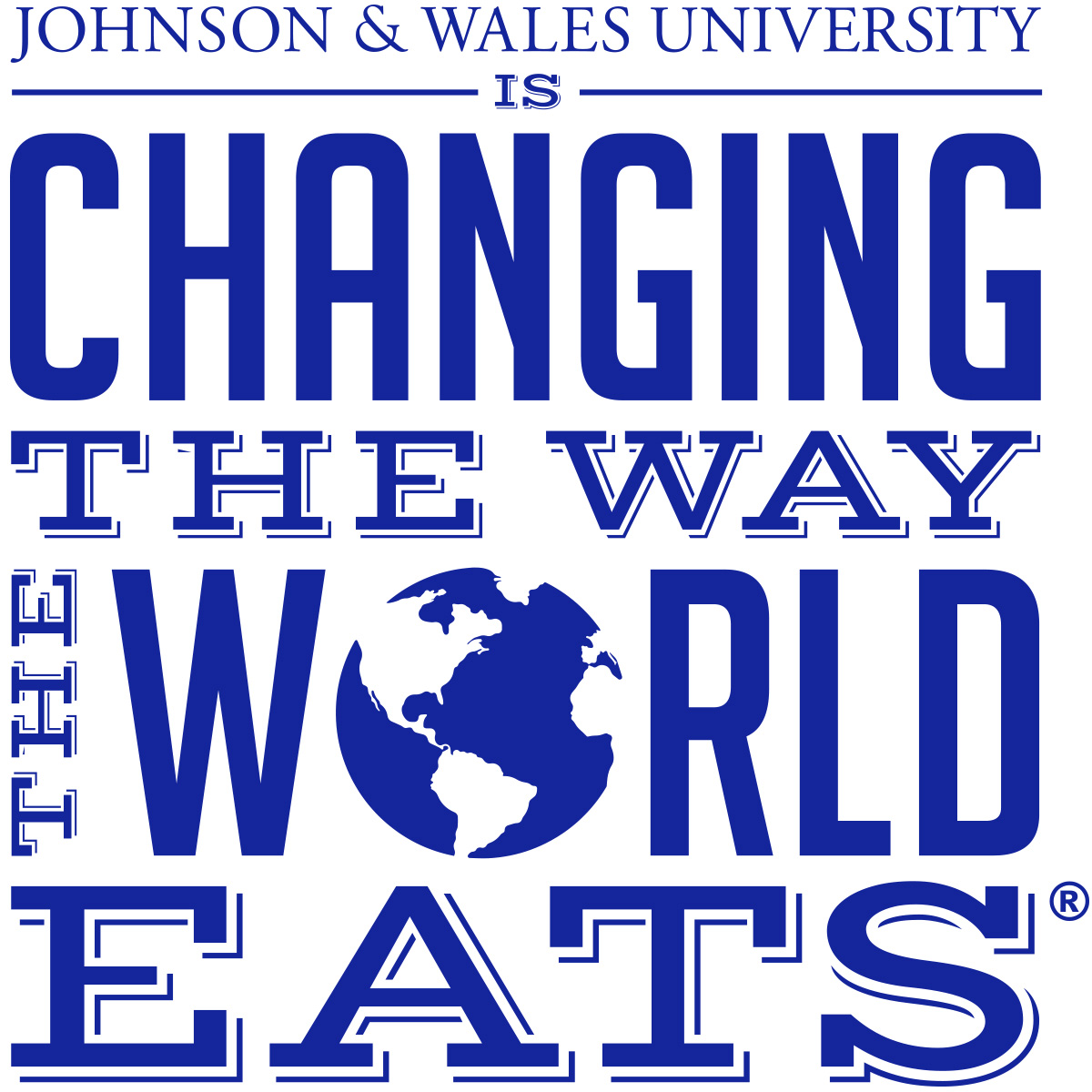The Making of the Sustainable Chef
By Chef Branden Lewis '04, '06, CEC
March 2017

Through the curriculum of our Wellness & Sustainability concentration, JWU is cultivating a different kind of chef. A sustainable chef. And this is how we’re doing it.
Our concentration consists of labs and an academic course designed to change the way our students think about food, cooking, and the world in which they live. In Farm to Table Desserts, Plant-based Cuisine, and Conscious Cuisine, all hands-on labs, students learn and practice advanced culinary techniques, and different elements of sustainable cooking and leadership. They choose locally grown or caught in-season ingredients, design healthy and high-end cuisine, and prepare thematic meals for chef’s tables populated with special guests, all with the goal of delivering a great meal while educating consumers.
In the academic class, Sustainability in the Culinary Kitchen, students learn about their local food web by going on excursions to meet community growers, fishermen, food producers, and advocates in order to learn where food comes from and what it takes to provide it. This experience impacts students’ decision-making process when it comes to sourcing ingredients and working within their community’s food web. They learn how important relationships are, and how their restaurant food utilization can influence how ingredients are made, grown, caught, and sold. Through their purchasing power and restaurant mission, chefs have a tremendous capacity to influence not just the culinary industry, but society as well. The National Restaurant Association (NRA) reports there are more than one million restaurants in the U.S., with $799 billion in annual restaurant industry sales (2017 Restaurant Industry Pocket Factbook). This demonstrates the potential impact chefs can have on the local food system.
To follow class expeditions into the world of culinary sustainability, check out our Instagram posts under #sustainablechefs.
